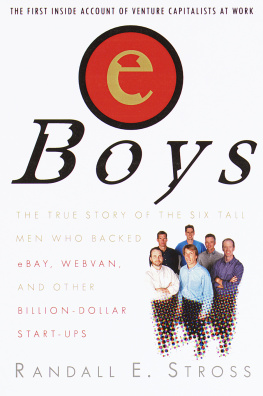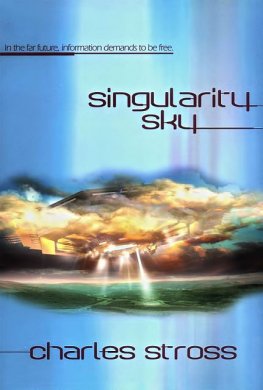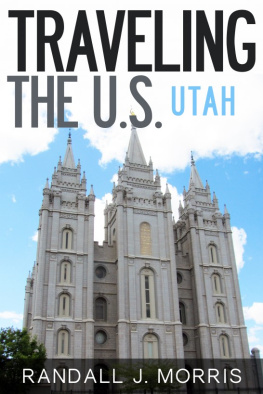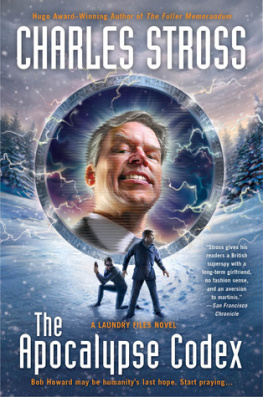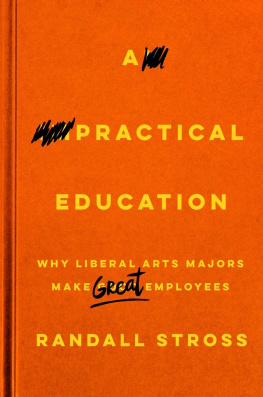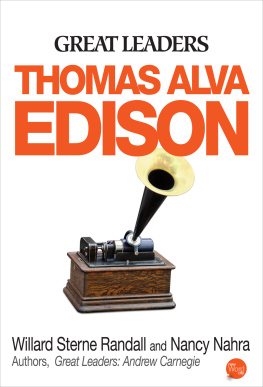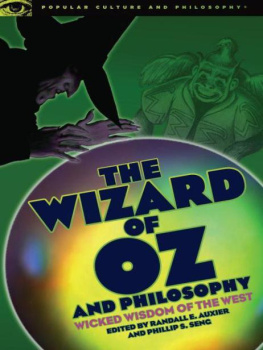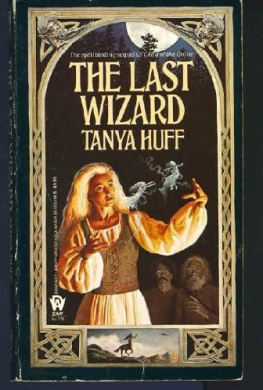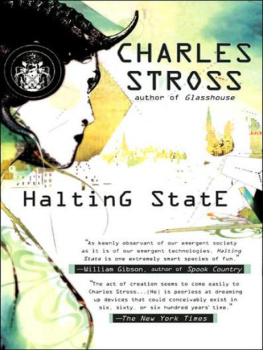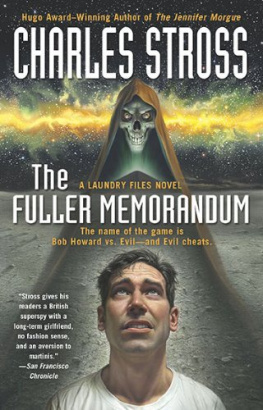Randall E. Stross - The Wizard of Menlo Park
Here you can read online Randall E. Stross - The Wizard of Menlo Park full text of the book (entire story) in english for free. Download pdf and epub, get meaning, cover and reviews about this ebook. year: 2007, publisher: Crown Publishing Group, genre: Non-fiction. Description of the work, (preface) as well as reviews are available. Best literature library LitArk.com created for fans of good reading and offers a wide selection of genres:
Romance novel
Science fiction
Adventure
Detective
Science
History
Home and family
Prose
Art
Politics
Computer
Non-fiction
Religion
Business
Children
Humor
Choose a favorite category and find really read worthwhile books. Enjoy immersion in the world of imagination, feel the emotions of the characters or learn something new for yourself, make an fascinating discovery.

- Book:The Wizard of Menlo Park
- Author:
- Publisher:Crown Publishing Group
- Genre:
- Year:2007
- Rating:3 / 5
- Favourites:Add to favourites
- Your mark:
- 60
- 1
- 2
- 3
- 4
- 5
The Wizard of Menlo Park: summary, description and annotation
We offer to read an annotation, description, summary or preface (depends on what the author of the book "The Wizard of Menlo Park" wrote himself). If you haven't found the necessary information about the book — write in the comments, we will try to find it.
The Wizard of Menlo Park — read online for free the complete book (whole text) full work
Below is the text of the book, divided by pages. System saving the place of the last page read, allows you to conveniently read the book "The Wizard of Menlo Park" online for free, without having to search again every time where you left off. Put a bookmark, and you can go to the page where you finished reading at any time.
Font size:
Interval:
Bookmark:
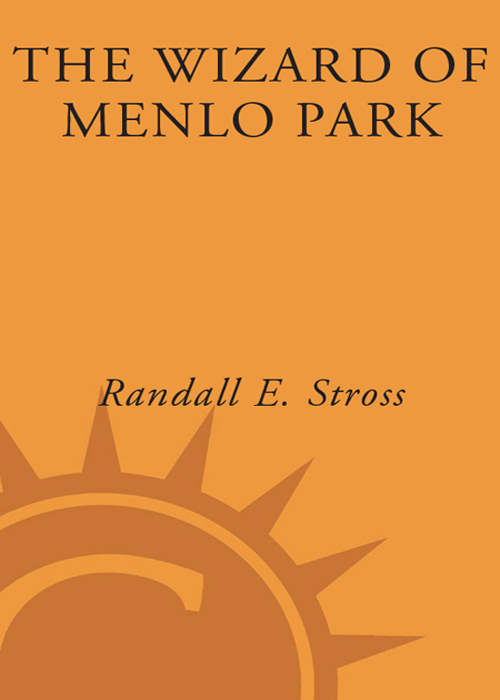
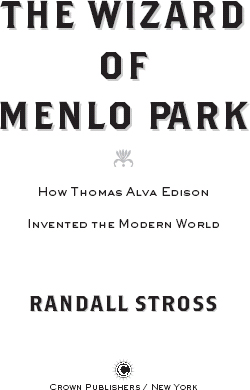
CONTENTS

To Ellen
INTRODUCTION 
T HOMAS A LVA E DISON is the patron saint of electric light, electric power, and music-on-demand, the grandfather of the Wired World, great-grandfather of iPod Nation. He was the person who flipped the switch. Before Edison, darkness. After Edison, media-saturated modernity.
Well, not exactly. The heroic biography we were fed as schoolchildren does have its limitations, beginning with the omission of other inventors who played critical rolesnot just Edisons gifted assistants, but also his accomplished competitors. Whats most interesting about the standard Edison biography that we grew up with is not that it is heroic but that it is outsized, a projected image quite distinct from the man who stood five foot nine. Once brought into being, Edisons image inhabited its own life and acted autonomously in ways that its namesake could not control. Edison is famously associated with the beginnings of movies, which is where the modern business of celebrity begins. But he deserves to be credited with another, no less important, discovery related to celebrity that he made early in his own public life, accidentally: the application of celebrity to business.
The celebrity is distinguished from the merely well known by the publics bottomless desire for closeness, for learning anything and everything about the person. The first celebrities in American history were political and military figures, the Founders and Lincoln. Treating them as objects of fascination, the public experienced a feeling of personal, and wholly spurious, closeness. In the 1870s, Edison joined the ranks of larger-than-life demigods, making way for the civilian celebrity. Other nineteenth-century figures, like Mark Twain and P. T. Barnum, also gained fame on a scale impossible to imagine in an earlier time for those who worked outside of politics, but Edisons celebrity exceeded everyone elses. He achieved it well before he and others had created the technology to mass produce visual intimacy on a larger-than-life scale. When Edison initially became famous, the public could see him only with images conjured by newspaper text, supplemented with the occasional line drawing. During his lifetime, however, the technology for depicting images advanced rapidly. His face became so well known that an envelope mailed on a lark from North Carolina with nothing but his picture on it to serve as both name and address arrived in his hands in New Jersey a few weeks later.
No one of the time would have predicted that it would be an inventor, of all occupations, who would become the cynosure of the age. In retrospect, fame may appear to be a justly earned reward for the inventor of practical electric lightyet Edisons fame came before light. It was conferred for an earlier invention: the phonograph. Who would have guessed that the announcement of the phonographs invention would be sufficient to propel him in a matter of a few days from obscurity into the firmament above? Any one of dozens of technical breakthroughs that had come before had much greater impact on the U.S. economy. Their creators were more likely candidates for the top rank of fame. Eli Whitneys cotton gin, or his muskets made with interchangeable parts, Robert Fultons steamboat, John Jethro Woods iron-tipped plough, Cyrus McCormicks reaper, Charles Goodyears rubber-manufacturing process, Samuel Morses telegraph, Elisha Graves Otiss elevator, Lucien Smiths barbed wire, and Alexander Graham Bells telephone, which appeared one year before the phonographthese were prior inventions that fundamentally changed the U.S. economy. Why would the phonograph, of all things, have made its inventor famous beyond imagining? More mysterious is that it was not the phonograph itselfit would take two decades before the machine was ready to be actually commercialized on a mass scalebut the mere idea of the phonograph that instantly seized the imagination of everyone who heard of it, inspiring essayists to expect machines capable of thinking as well as speaking.
Edisons admirers endowed him with fantastical powers that would permit him to invent anything he wished (one humorist suggested that he invent a pocketbook that will always contain a dollar or two). Edison did not himself lack for self-confidence and held fast to the conviction that he could remove any technical obstacle that impeded his progress, no matter what field of invention he explored. This conviction would lead him into blind alleys, but it also led to astonishing successes, planned and unplanned. More than anything else, the utterly fearless range of his experimental activities draws our attention today.
Fearlessness was needed when he elected to become a full-time inventor at the tender age of twenty-two, a bold step for a young man without family money. Both of the two previous generations of Edisons had been politically active and cursed with unfortunate luck, having to move permanently and far away to avoid the consequences that followed from backing a losing cause. Edisons grandfather had been a Loyalist in New Jersey during the War for Independence and had moved the family to Canada at the end of the war. Two years before Edison was born, his Canadian father, Samuel, an innkeeper by trade and Thomas Painelike firebrand by temperament, backed an insurrection against the Canadian provincial government. When the uprising failed, Samuel had to flee for his life without his wife and four children and headed south to the United States. He landed in a canal town, Milan, Ohio, eight miles south of Lake Erie, where his family rejoined him. He dabbled in shingle manufacturing, land speculation, and truck farming, prospering by small-town standards as regional trade grew, then losing his gains when railroads took canal traffic away.
Thomas Alva Edisonknown as Al as a childwould be the last of the seven children born to his mother, Nancy. High infant and childhood mortality in the mid-nineteenth century is encapsulated in the family history: only three of his six siblings survived beyond the age of six. All three were in their teens when he arrived on 11 February 1847his oldest sister was eighteenso he was soon the only child left living at his parents house. When he was seven, the family moved to Port Huron, Michigan, a frontier town offering opportunities in lumbering and real estate speculation. His mother, a former schoolteacher, provided the homeschooling that constituted the entirety of his education, other than two brief stints at local schools. These circumstances, along with his progressive loss of hearing, nurtured the autodidact in Edisons makeup.
His father introduced his son to the highly esteemed writings of Paine, but young Edison did not inherit his fathers interest in politics. He did, however, show an entrepreneurial bent that resembled his fathers. Before Edison, the inventor, made a precocious appearance, Edison, the boy tycoon, had emerged. The opportunities he discovered as a twelve-year-old wheeler-dealer were opened when he persuaded his mother to let his home studies end so that he could take a position as newsboy on a train that ran from Port Huron to Detroit. Once on board, he saw that he could buy goods cheaply in the big city and retail them in little Port Huron at a nice markup. He opened two storesa newsstand and a fresh-produce standand hired two other boys to staff them and share in the profits. Loading a U.S. mail car with his baskets of vegetables, without charge, would likely have brought the disapproving attention of some authority figure on the railroad. But here, too, young Edison showed a gift for knowing how to enlist the cooperation of everyone: He offered to the wives of the engineers and trainmen the fresh blackberries, butter, and other delectables at the same low wholesale prices that he had paid.
Next pageFont size:
Interval:
Bookmark:
Similar books «The Wizard of Menlo Park»
Look at similar books to The Wizard of Menlo Park. We have selected literature similar in name and meaning in the hope of providing readers with more options to find new, interesting, not yet read works.
Discussion, reviews of the book The Wizard of Menlo Park and just readers' own opinions. Leave your comments, write what you think about the work, its meaning or the main characters. Specify what exactly you liked and what you didn't like, and why you think so.

